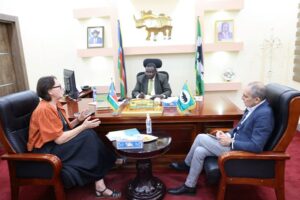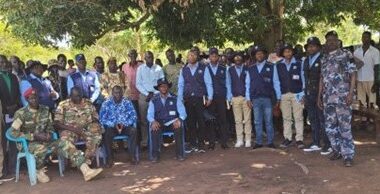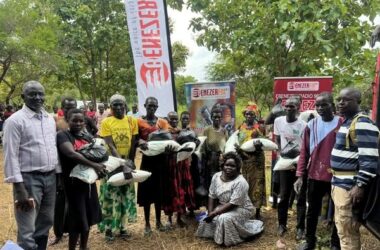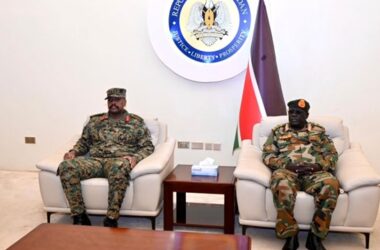
By Lodu William Odiya
The International Committee of the Red Cross (ICRC) has yesterday affirmed its plan to assess the humanitarian crisis Kajo-Keji county.
According to the statement, the Central Equatoria State Governor, Rabi Mujung Emmanuel held an exclusive meeting with Florence Gillette, the Head of Delegation for the International Committee of the Red Cross (ICRC), at the State Secretariat on Tuesday in Juba.
“We discussed two issues with the Governor: the current humanitarian needs in Kajo-Keji and the coordination required to respond effectively,” said Gillette.
According to the statement, the ICRC Florence Gillette described the meeting as productive, affirming the ICRC’s commitment to joint assessments.
“We also discussed the handover of a major ICRC water scheme in Gumbo that supplies safe drinking water to over 100,000 people.” The statement noted.
The statement emphasized the discussion followed by the growing humanitarian crisis in Kajo-Keji County following the recent border tensions with Uganda.
The statement further noted that, the meeting focused on mobilizing ICRC support in response to the displacement and urgent humanitarian needs resulting from last week’s incident at the South Sudan–Uganda border.
The incident, involving Uganda People’s Defense Forces (UPDF), led to the displacement of thousands of civilians in Kajo-Keji.
The statement also empathized the Commissioner of Kajo-Keji County, noted that the crisis has affected 2,934 households, impacting a total population of 16,304 people.
It further underlined immediate humanitarian needs include food, shelter, cooking utensils, and medical supplies as well as clean drinking water.
Meanwhile, the statement also stated that Governor Mujung emphasized the urgent need to assist displaced populations and commended the ICRC’s ongoing support to the people of Central Equatoria State.
It also underscored Governor reiterated the State government’s readiness to work hand-in-hand with humanitarian partners to address the crisis.
The statement stressed that Hon. Rose Lisok, Chairperson of the State Relief and Rehabilitation Commission, described the situation in Kajo-Keji as dire.
She appreciated ICRC’s intervention and called for other partners to come on-board to handle the other needs ICRC is not handling.
“We are facing a very difficult and alarming situation, especially affecting women, children, the elderly, and people with disabilities,” she said.
“We appeal to other humanitarian organizations to intervene urgently so we can meet the basic needs of the displaced.” She added
Last week, Uganda had sent additional troops and tanks to its border with South Sudan following a deadly clash near a shared border that killed several soldiers and displaced thousands of civilians.
The fighting erupted on Monday 28, July in South Sudan’s Kajo-Keji County after Ugandan forces accused South Sudanese troops of crossing into Uganda’s West Nile region and refusing to withdraw.
The Bishop of Kajo Keji had made an appeal for humanitarian intervention, following surprise attacks.
Kajo Keji has endured a challenging, conflict-filled past, but residents remain remarkably resilient.
They dare hope for a brighter future, despite still finding themselves under sporadic attacks.



